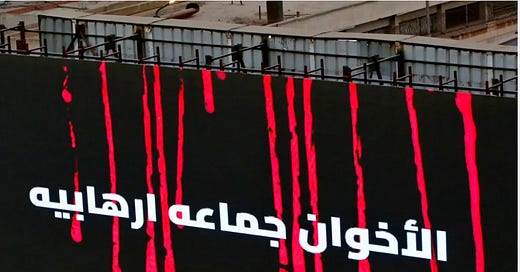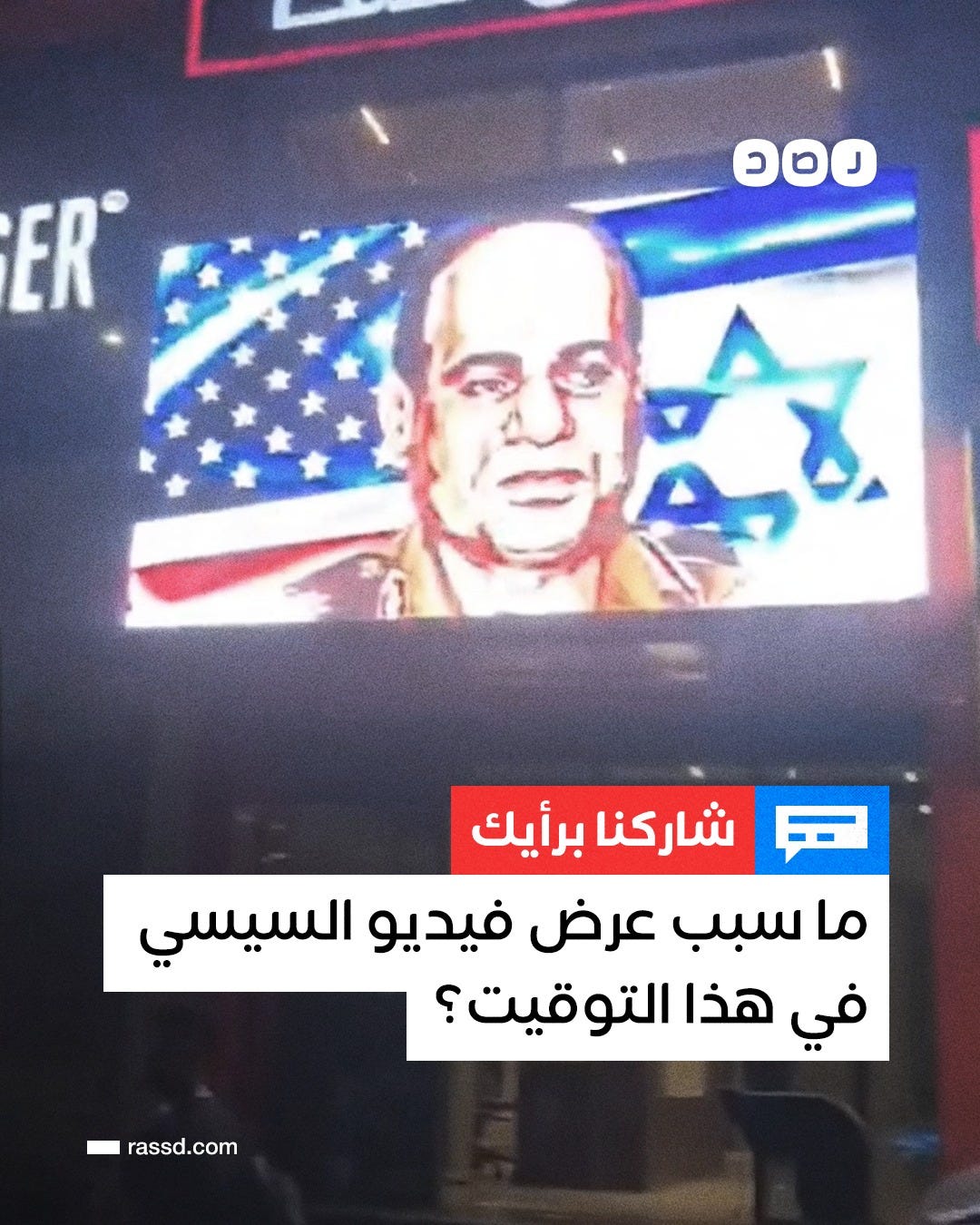I slammed the car door as I climbed in next to my dad. We were on our way back from his dear friend and mentor’s funeral in 6th of October. Salah, my youngest brother, tactfully indicated that perhaps I’d rather ride with my dad instead of with him. Salah’s driving is somewhat abominable and – to his great displeasure - I tend to be very vocal about it. Car rides with him tend to be unnecessarily lively. So, the chic invite to be sacked from his car was welcome.
As we drove off back to Tagamo’, I contemplated the bustling city lights of the relatively new city. 6th of October was the extension to Giza west of the Nile and Tagamo’ or 5th Settlement was the equivalent extension to New Cairo in the east. Though both are still considered part of the Greater Cairo metropolis, inhabitants of the respective satellites think of their counterparts as being a world apart. About an hour or so car-ride thanks to Sisi’s new bridges.
Large billboards, along with the wide roads, fancy private gated communities, and metastasizing malls, have become staple features of the new extensions. I remember when I first started driving to Tagamo’ back in 2008 when AUC migrated from its historic location in Tahrir Square to its current New Cairo location. It was mostly surrounded by desert then and I was among the students who understood the need but still detested it. You didn’t get the Cairo feel in New Cairo. No old French colonial era buildings like the ones you get downtown. No foul-and-ta’meyya (falafel) carts or fruit vendors. The move to New Cairo felt like it was trying to escape the old city.
That was then though. Luckily, it couldn’t escape it.
Now, the Cairo tang has caught up with the satellite cities and helped inoculate them with a healthy dose of lived-in-ness. Certainly not the same. But at least the haphazardly set-up watermelons and prickly pear street vendors that pop-up everywhere in old Cairo are now also in Tagamo’ and 6th of October, helping us all relish the same summer vibe.
But the attempts to supplant the old Cairo charm with some hodgepodge of gaudy cosmopolitan flair is still alive and kicking. Fancy residential compounds with names like Palm Hills, Hyde Park, and Mivida have become the norm. Western names for western lifestyles. Though there seems to be a slim but growing push for things that intentionally harken back to our roots. Like Fustat View with their “A lifestyle with Cairo Charm” (حياة اقرب لسحر القاهرة).
Real estate is one of the most profitable sectors in Egypt right now. Many of it is led by UAE and Saudi as part of the wider trend of their ever increasing soft power over Egypt. The Emirati Ras El Hekma deal back in February just further catapulted us onto that same trajectory. Though it was heralded by the government as the best thing since sliced bread, it’s really hard to ignore its timing and how it relates to Gaza and Egypt’s diplomatic role in doing squat to change the status quo. Everyone was waiting for the big payout to make sure Egypt stays in line, but what is Ras El-Hekma if not that payout?
At any rate, as I scanned the billboards, one of them caught my attention. It was a screen that displayed short ad reels. The reel that grabbed my attention was a black screen with (الاخوان جماعة ارهابية) “The Muslim Brotherhood is a Terrorist Group” written across it in bold white print with red blood streaks dribbling down over the words. It was part of a wider state-sponsored (حتى لا ننسى) “So We Don’t Forget” campaign targeting the Muslim Brotherhood after the Faisal hacking incident.
I asked my dad if he’s heard about what happened in Faisal. He hadn’t. I hadn’t either and it was Salah who had told me about it. Apparently one of those ad screens in Faisal was hacked and started displaying short clips of Sisi with captions that mocked him and accused him of being a murderer and a thief. One had his face transposed on a backdrop of the US and Israeli flags. Police forces quickly descended on the scene, cut down power, and did a round of arbitrary arrests. Shortly after, someone was arrested and he confessed to being affiliated to the Muslim Brotherhood. The MB was created in Egypt back in 1928, has always had a complicated relationship with governments in Egypt that often ended with it being banned from public life. After they briefly rose to power in the wake of the 2011 revolution, they were again steamrolled in 2013, this time by Sisi. They have been declared a terrorist group since.
The state campaign that was launched in response showed clips of bearded men with weapons, of buildings partially consumed by fire, of masses being arrested. Mostly it showed chaos. As reminders to us citizens of all that went down when the ikhwan were allowed to take the reins. And they did do terrible things. I am certainly not a fan. But what did Sisi do? He boosted infrastructure and reinvigorated Mubarak’s Toshka and other commendable things. But at what cost? We won’t forget what the Ikhwan did. But we also won’t forget Rab’a. And we won’t forget Alaa Abdel-Fattah and all the other political prisoners. We won’t forget Sisi’s abject complicity with Gaza. At least we’ll try.
The conversation that the recounting of this incident triggered with my dad easily filled up our hour-ish ride back to Tagamo’. As always it veered into the tangent of Wahhabism and how that branch of Saudi Islam infiltrated Egypt and fanned a more reactionary brand of Islamist politics that took root in the MB movement, which in turn distorted Egyptians’ idea of what it means to be an Egyptian. That was a common theme in my dad’s iteration of what-went-wrong with Egypt. It always bugged me, but I used to consume it uncritically.
Not anymore though. I don’t see how the current iteration of more liberal Saudi and Emirati consumerist infiltration in Egyptian society is any less noxious than the 1990s Wahhabi version. I don’t see how the proliferation of mega malls and opulent gated communities – a very Saudi phenomenon – is more Egyptian than the preceding rise of salafi-beards (to be distinguished from leftist hippie beards), hijabis, and niqabis.
In fact, I find the prevailing version of cultural invasion much more unsettling.
The very motif of what constitutes the “real” Egypt and a “real” Egyptian is a wall that growing up I often found myself staring at. I also keep thinking of it in the context of my kids and how they will process and project their own identities, particularly since they are part-American. I’m slowly realizing that something about identity talk seems inherently toxic. Amin Maalouf candidly reflects on this in his Deadly Identities (الهويات القاتلة). I’m still reading it and so far am finding it invaluable in helping recalibrate my own reflections on my Egyptian-ness.
That car conversation with my dad was my first attempt to articulate this budding thought. A smattering of subsequent conversations helped further cultivate it and I can feel it taking root. As I stepped out of the car, I thought of the billboards, the gated communities, of the Ikhwan, Sisi, Gaza. And of Amin Maalouf. It was all swirling in there. And though I don’t have an answer to the what-went-wrong-with-Egypt question, I walked out feeling slightly lighter and maybe even optimistic. Like maybe I was closer to finding a less-toxic identity-recipe. One that I’ll try to relay to my kids. And maybe then they will do a better job at finding a less deadly answer to what it means to be them.





